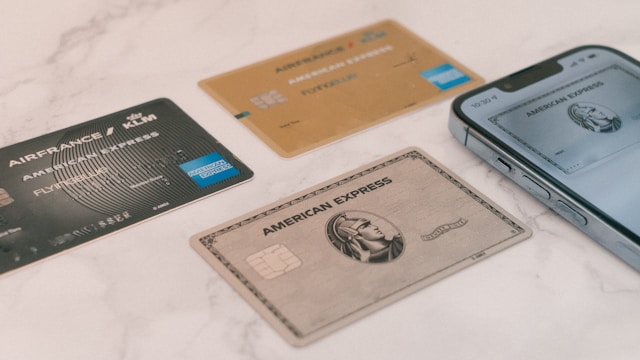Car insurance is one of those things you know you need, but you probably wish you were paying a little less for it. The good news is that you can save on car insurance without sacrificing the coverage you need. Whether you are a seasoned driver or just got your license, there are smart ways to lower your premiums and keep more money in your pocket.
In this article, we will break down what are some ways to save on car insurance with detailed, actionable tips. No gimmicks, just real strategies you can start using today.
1. Shop Around Before You Commit
Never assume the first quote you get is the best. Insurance companies offer different rates based on their own algorithms, risk assessments, and marketing goals.
Action Tip:
Get at least three to five quotes from different providers before choosing a policy. Use online comparison tools, but also consider calling a few companies directly. Sometimes you can get a better deal by speaking to an agent.
Why it works:
Insurance providers want your business. When you show them you are shopping around, they are more likely to offer discounts or better coverage options.
2. Bundle Your Policies
Bundling is one of the easiest ways to save on car insurance. Most insurers offer a discount when you combine your auto insurance with other policies like homeowners, renters, or life insurance.
Action Tip:
Ask your current insurer if they offer bundling discounts. You could save 10 to 25 percent just by combining policies.
Why it works:
Insurance companies reward loyalty. They see bundled customers as more stable and less likely to switch providers.
3. Raise Your Deductible
Your deductible is the amount you pay out of pocket before your insurance kicks in. A higher deductible usually means a lower monthly premium.
Action Tip:
If you have some savings set aside, consider increasing your deductible from $250 to $500 or even $1000. Just make sure you can afford it if an accident happens.
Why it works:
When you raise your deductible, the insurer pays less in the event of a claim, so they reward you with lower rates.
4. Maintain a Clean Driving Record
Safe driving is one of the most effective ways to save money over the long term. Speeding tickets, accidents, and other violations can significantly raise your premium.
Action Tip:
Take a defensive driving course if you have past violations. Some insurers offer discounts for completing these programs. Also, always obey traffic laws and avoid distracted driving.
Why it works:
Insurers consider you a lower risk when you drive safely, and that means lower premiums.
5. Use Low-Mileage Discounts
If you don’t drive much, you might qualify for a low-mileage discount. Many insurers reward drivers who drive less than 7,500 miles a year.
Action Tip:
Check your annual mileage and ask your insurer if they offer mileage-based savings. You can also consider pay-per-mile insurance if you rarely drive.
Why it works:
Less time on the road means less exposure to accidents and claims. Insurers love that.
6. Improve Your Credit Score
Yes, your credit score can affect your car insurance rates. Many insurers use your credit history to determine how reliable and responsible you are.
Action Tip:
Pay your bills on time, reduce your credit card balances, and check your credit report for errors. Even a small increase in your credit score can lead to better rates.
Why it works:
Statistically, people with higher credit scores file fewer insurance claims. That lowers the risk for insurers.
7. Ask About Every Discount Available
There are more discounts out there than most people realize. Good student, military, senior citizen, safe driver, new car, hybrid vehicle, anti-theft device – the list goes on.
Action Tip:
Call your insurer and ask them to walk you through every possible discount you could qualify for. You might be surprised how many apply.
Why it works:
Insurance companies offer these incentives to reward responsible behavior and loyalty, but they do not always advertise them clearly.
8. Drive a Car That’s Cheap to Insure
Not all cars are equal in the eyes of insurers. Sports cars, luxury vehicles, and models with high repair costs will come with higher premiums.
Action Tip:
Before you buy your next car, get a quote from your insurer. Look for vehicles with strong safety ratings, lower theft rates, and affordable repair costs.
Why it works:
Cars that are safe and affordable to repair cost less to insure because they are less risky for the insurer.
9. Use Telematics or a Driving App
Many insurers now offer discounts if you use a telematics device or app that tracks your driving habits. These tools measure how fast you drive, how hard you brake, and how often you drive at night.
Action Tip:
Sign up for your insurer’s telematics program or safe driving app. If you drive responsibly, you could save 10 to 30 percent.
Why it works:
These tools provide real data about your driving behavior, allowing insurers to give personalized discounts.
10. Review and Update Your Policy Annually
Life changes, and so should your insurance. If you’ve moved, started working from home, paid off your car, or added safety features, your policy might need updating.
Action Tip:
Set a yearly reminder to review your policy. Call your insurer and go over your current situation to make sure your coverage and price still make sense.
Why it works:
An outdated policy may be charging you for coverage or risk factors that no longer apply.
Final Thoughts
So, what are some ways to save on car insurance? As you can see, the list is long, practical, and totally within your control. From shopping around and bundling policies to improving your credit score and choosing the right car, you have multiple ways to lower your premium without cutting corners on protection.
Start small. Make one change this week. Call your insurer, review your driving habits, or check your credit score. Over time, these smart moves can lead to hundreds or even thousands of dollars in savings.
Remember, car insurance is not just a monthly bill. It’s a powerful tool for financial protection. But that doesn’t mean you should overpay for it.



